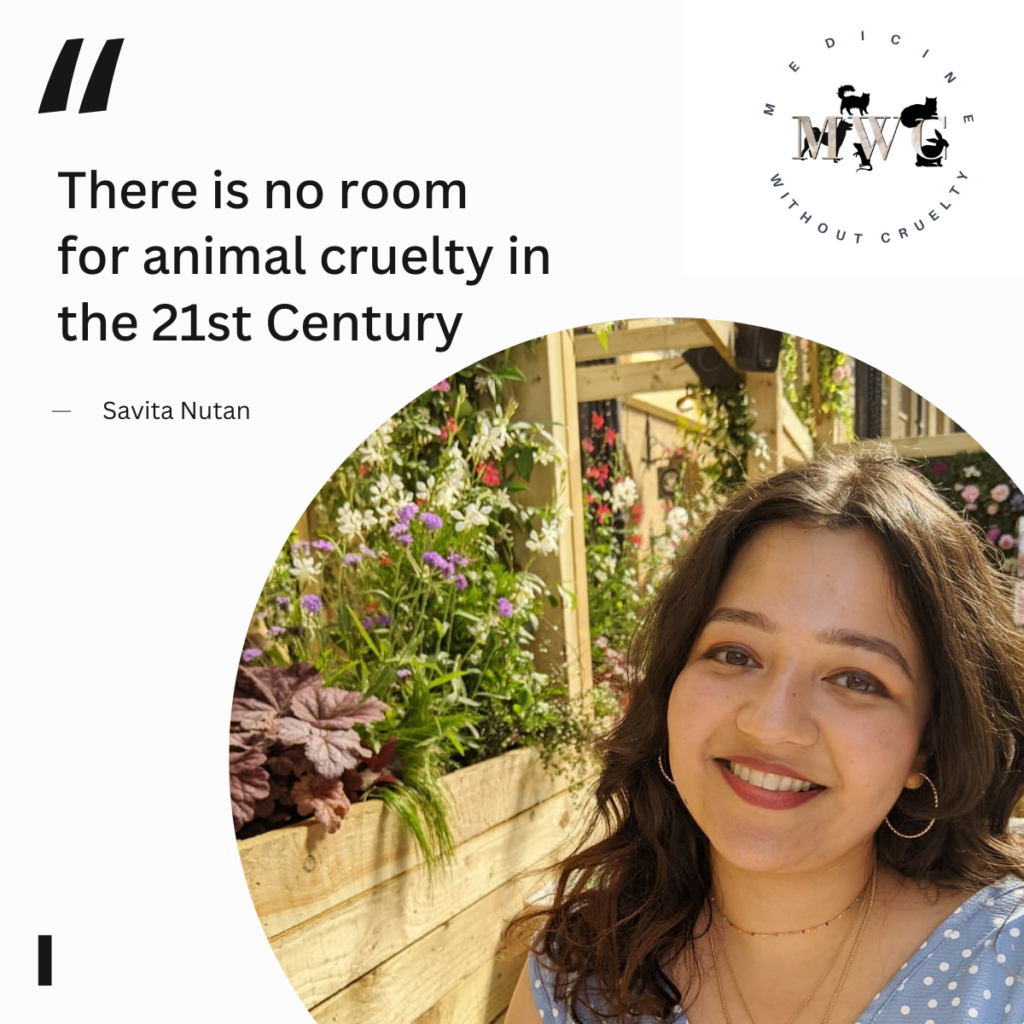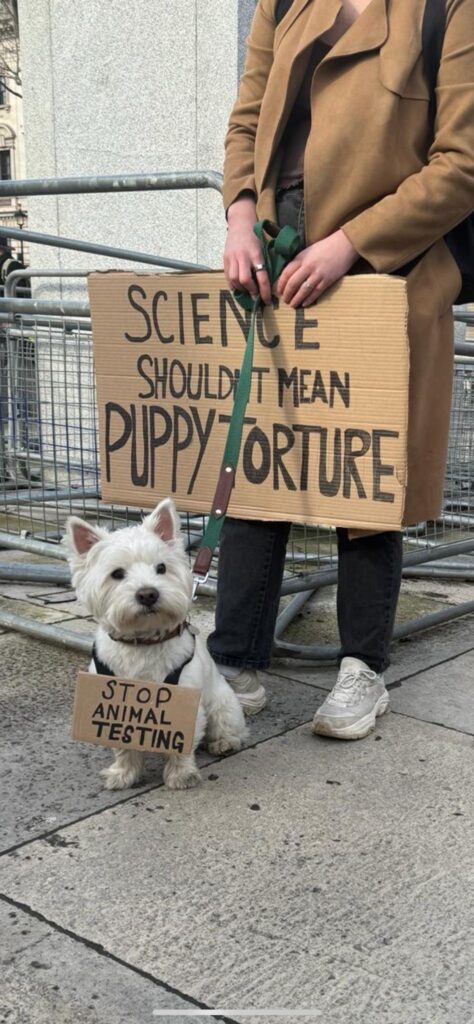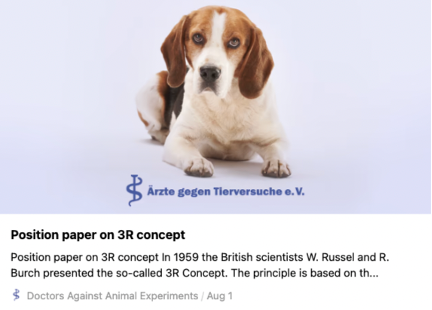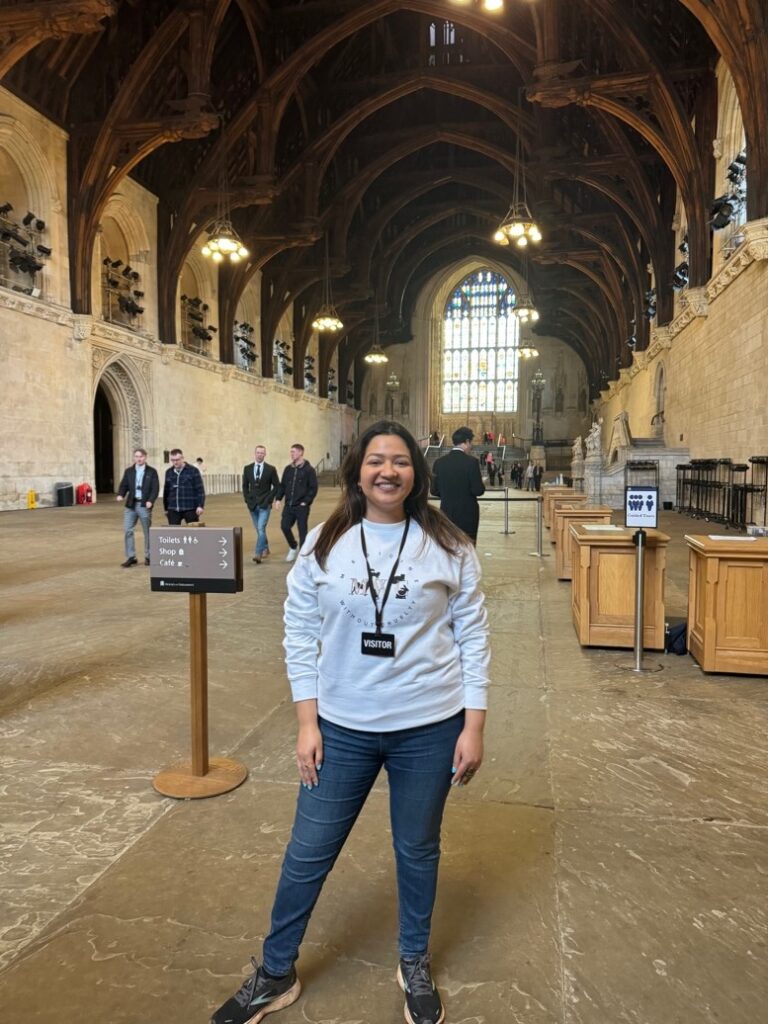
By Kunal Chan Mehta, FSB’s Public Relations Manager, Article Date: 08 April 2024
The hallowed halls of Parliament once again echoed with impassioned pleas and reasoned discourse as Members of Parliament fervently debated the contentious issue of animal testing. Gathered amidst this assembly was Savita Nutan, a distinguished healthcare lecturer from FSB Croydon, and founder of non-profit organisation, Medicine Without Cruelty, who lent her voice to the urgent call for change.
The catalyst for this momentous debate lay in the submission of two petitions, together bearing the weight of over 100,000 signatures from concerned citizens across the United Kingdom. The first petition, a clarion call to cease the use of animals for toxicity tests, resonated deeply with those who advocate for humane and scientifically sound practices. The second petition, no less impactful, demanded a ban on the use of dogs for all testing and research endeavours in the UK.

In a stirring address outside of parliament with her fellow campaigners, namely Camp Beagle who spearheaded the first petition, Savita underscored the urgent need for action, dismissing any notion of impossibility in achieving this noble goal. “Let us be unequivocal,” she declared, “the time for change is now.” “If the government was truly keen on reducing, refining, or indeed replacing animals in science, then they would have stopped breeding more animals. But it has persisted – with immense pain and agony – these animal’s suffering has persisted”.


Citing compelling evidence that animals often fail to reliably predict human responses to chemicals, Savita revealed a staggering statistic: ‘’an estimated 92% of drugs fail in human trials despite prior testing on animals.’’ She challenged the prevailing paradigm, asserting that the relentless pursuit of animal testing persists despite its glaring scientific inadequacies.
Following a series of erudite speeches by Members of Parliament, including Andrew Griffith, the Minister for Science, Research, and Innovation, the government’s stance was unveiled. Commitments were made to double investment in research aimed at achieving the 3Rs – Reduction, Refinement, and Replacement however critics like Savita were quick to highlight the shortcomings of such initiatives. Emphasising that the 3Rs framework fails to address the fundamental flaws inherent in animal testing, she urged for a radical shift towards non-animal methods based on robust scientific evidence (see Position paper on 3R concept, Doctors Against Animal Experiments).

See https://www.aerzte-gegen-tierversuche.de/en/about-us/position-papers/position-paper-on-3r-concept
Moreover, the government’s decision to restart the public attitudes to animal research surveys drew disbelief from Medicine Without Cruelty. Despite the overwhelming support garnered by the petitions and the unequivocal backing of renowned experts against animal testing, it was disheartening for Medicine Without Cruelty to see these voices had not truly been heard.
In a move that underscored the government’s reluctance to enact substantive change, an increase in Home Office fees for animal project licenses was announced. While superficially aimed at curbing animal testing, Medicine Without Cruelty argued that such measures only serve to perpetuate the status quo, allowing well-heeled corporations who can very well afford the price hike to continue their operations unabated.

For Medicine Without Cruelty, the government’s response fell short of expectations. “We cannot accept token gestures instead of meaningful action,” Savita asserted. “The barbaric suffering of animals must end, and it must end now.”
As the debate reverberates across the nation, the tide of public opinion swells in favour of compassion and progress. With advocates like Savita
leading the charge, the call for an end to animal testing grows ever louder, a clarion call for justice in the pursuit of scientific inquiry.
Savita will be conducting seminars on the future of medicine, a path of real progress without animal cruelty towards the betterment of human health and will offer debate sessions on ‘How to argue your stance professionally yet passionately.’
Find out more: http://debate.medicinewithoutcruelty.com/
Reference:
Lowe, D. (2019). The Latest on Drug Failure and Approval Rates. In The Pipeline [Online]. Available from: https://blogs.sciencemag.org/pipeline/archives/2019/05/09/the-latest-on-drug-failure-and-approval-rates 2019.
